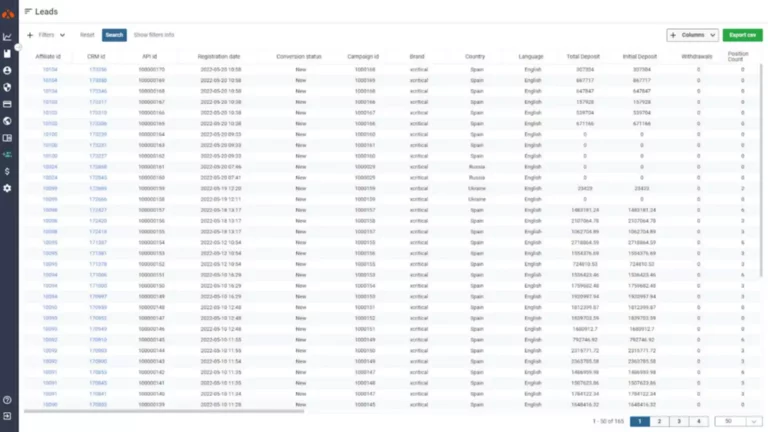Content
On the other hand, institutional trading is entirely legal and regulated, though institutions must disclose their holdings regularly. Solutions that cater to this demographic prioritize anonymity, ensuring that their trades remain confidential, especially when working with sizable positions. This level of discretion allows institutions to operate without prematurely influencing the Proof of personhood market. Institutional trading solutions stand apart from their retail counterparts for several reasons. First, they cater to the high volume and significant capital requirements of institutional traders. When you’re dealing with millions or billions, you need a system that can handle that volume without buckling.
How do institutional investors affect the stock market?
In other words, the what is institutional trading market is much more efficient than a few decades ago, so picking out undervalued or overpriced stocks is much rarer and less reliable. We often hear about the success of skilled portfolio managers and the profitability of active stock management. However, there is always a risk of information leakage and high-frequency traders front-running once they catch wind of the pending trade. However, it could promote insider trading to incentivize executives and, therefore, the company’s productivity.
Institutional Trading Strategy: Best Tips and Examples
Building a career in this challenging field requires a blend of formal education, practical market experience, and a performance-driven mindset. It’s not just about large transactions and high-profile clients; it’s about strategic approaches, specialized tools, and a distinct market perspective. Being an institution trader in one of the largest financial banks and investment companies can give you a huge advantage in the market. And sometimes, it’s not so bad, as evident from the GameStop short squeeze story in 2021. Nowadays, with the vast amount of information available online, you can get valuable tips on popular financial forums. If you https://www.xcritical.com/ find an interesting comment or suggestion, do your research to back it up and make a smart investment decision.
Insider trading and institutional investing
- Each book gives you an informative insight into the concepts that are integral for the financial market traders and hence, institutional traders can also benefit from the same to apply the methods for their clientele.
- SMC posits that institutional players, the “smart money,” leave subtle footprints on the charts, revealing their entry and exit points.
- These can be found on EDGAR, the SEC’s official database available to the public, as well as on the official websites of these institutional investors.
- The SEC requires institutional investors to file quarterly reports, known as 13F filings.
- Namely, insider trading refers to buying or selling stocks by individuals with access to non-public information about a company, and it’s illegal.
This course equips the individual with the necessary knowledge with regard to quantitative trading practices along with the knowledge and practical application of algorithmic trading concepts. Frankly speaking, in order to begin a career in institutional trading, there is no specific course or degree that one needs to opt for. When tracking institutional investments, it’s important to avoid common pitfalls that can lead to poor decision-making. Whether you’re an aspiring trader, a finance aficionado, or simply curious, we hope this guide shed light on an often-misunderstood segment of the trading world. And, of course, you can also join our Trading Academy and meet our trading coaches, who have vast experience in the financial sector and capital markets.
In an ever-evolving economic landscape, the pivotal role of market data analysis cannot be overstated. Facilitating strategic trade execution demands more than just intuition; it requires robust institutional trading tools that deliver actionable insights. A judicious blend of pre-trade and post-trade data analysis guarantees that traders and institutions remain steps ahead, ensuring not just survival but the ability to thrive in competitive markets. The concept of smart money refers to the behavior, flow, supply, and demand of the vast funds at the disposal of institutional investors. Since their capital dwarfs the funds used by retail investors, institutional traders inevitably leave a footprint on the market chart whenever they trade. Following the smart money aims to identify where and when the whales of Wall Street trade and benefit from the ensuing effects on the market.
The complex algorithms and sophisticated technologies that power institutional trading platforms are at their heart. These platforms use cutting-edge algorithms to analyze market data, identify trading opportunities, and execute transactions at lightning-fast speeds. It offers an all-in-one solution for real-time market data, news, financial analysis, and trading execution. Bloomberg Terminal is highly favored by financial professionals for its extensive data coverage, trading functionalities, and deep analytics capabilities. Equity trading platforms are specialized for buying and selling stocks and related instruments. These platforms offer direct access to major stock exchanges such as the New York Stock Exchange (NYSE), Nasdaq, and London Stock Exchange (LSE), along with advanced order-routing features and high-frequency trading capabilities.

Being patient allows them to look at the broad picture and invest with growth potential in mind rather than immediate profits. This does not mean that there are no institutional day traders–it just means that even frequent position changes usually stem from a fundamental, long-term factor. Another popular form of institutional investing, pension funds manage working people’s savings and can be either government-run or private.
Its arsenal of technological innovations provides real-time pre-trade pricing intelligence from top-tier liquidity providers and cutting-edge trading protocols. These enhancements are further bolstered by seamless integration with predominant order management systems and robust compliance structures. As we delve into the complexities and advantages of these trading tools, it becomes clear that they are more than mere instruments; they are pivotal allies in the art of trade execution. If you plan to become an institutional trader, the institutional forex brokers you choose – and their institutional trading platforms – can significantly impact your organization’s ability to profit from forex trading. This makes finding the right platform for your organization’s particular needs and goals essential.

Licensing fees, integration costs, and ongoing system updates can result in substantial expenses for institutional traders. Smaller firms or new market entrants may find it difficult to justify the cost of adopting such platforms. Due to their highly specialized nature, institutional trading platforms often have a steep learning curve. Traders and institutions may need extensive training to fully leverage the platform’s features and functionalities. The complexity of these platforms can also be a barrier to entry for smaller institutions. Many institutional investors and even fund managers use multiple investing strategies and approaches within an individual organization.
Unlike retail traders who invest individually, institutional traders typically have access to larger pools of capital and employ more sophisticated trading strategies. This may include the development of specialized modules or plugins for functions like algorithmic trading, portfolio optimization, and real-time market data analysis. The user experience will also become more intuitive and streamlined, focusing on data visualization and decision-support tools. Institutional trading platforms are specialized electronic systems that facilitate the buying and selling financial instruments, primarily for institutional investors. These platforms are designed to handle large financial institutions’ high-volume, low-latency trading requirements, offering a level of sophistication and functionality that is often beyond the reach of retail investors.
Trades are executed and seamlessly cleared on a single platform, eliminating inefficient reconciliations and trade breaks between brokers. Execute trades with Interactive Brokers’ superior price execution technology and then give up trade to a third-party broker. Market-bulls.com does not accept responsibility for any loss or damage arising from reliance on the site’s content. Users should seek independent advice and information before making financial decisions. FOREX.com, registered with the Commodity Futures Trading Commission (CFTC), lets you trade a wide range of forex markets with low pricing and spreads, fast, quality execution on every trade. The greater access to information with institutional trading can also create issues with processing all the available information.
Furthermore, BlackRock is the most prominent advocate for environmental, social, and governance (ESG) investing. In the fast-paced world of trading, selecting the right strategy can significantly impact your success. Contact an Interactive Brokers salesperson today to determine the best way to tailor our institutional services to meet your firm’s specific needs. TradeStation Securities is a member of SIPC, which protects securities customers of its members up to $500,000 (including $250,000 for claims for cash). TradeStation Securities’ SIPC coverage is available only for securities and for cash held in connection with the purchase or sale of securities, in equities and equities options accounts. A customer- and technology-focused multi-asset class financial firm with nearly four decades of evolution.
If you’ve ever been curious about what makes institutional trading tick, or if you’re considering the shift from retail to institutional, this comprehensive guide is tailor-made for you. Delving into these fundamentals allows institutions to uncover undervalued gems with strong long-term growth prospects, a strategy known as value investing. Alternatively, they may identify high-growth companies poised for market dominance, employing a growth investing approach. As institutional trading becomes more complex, regulators are likely to impose stricter rules to ensure market stability and transparency. The introduction of new regulations, including those focused on algorithmic trading and market manipulation, will shape the future landscape of institutional trading.
Institutional trading platforms are robust systems developed to handle the large-scale transactions and sophisticated requirements of institutional traders. These platforms facilitate the execution, management, and monitoring of trades in various asset classes, including equities, fixed income, commodities, currencies, and derivatives. They are typically equipped with advanced algorithms, automation capabilities, and tools that support high-frequency trading (HFT) and other complex trading strategies. As financial markets become more data-driven, the use of artificial intelligence (AI) and machine learning (ML) in institutional trading platforms is expected to rise.
